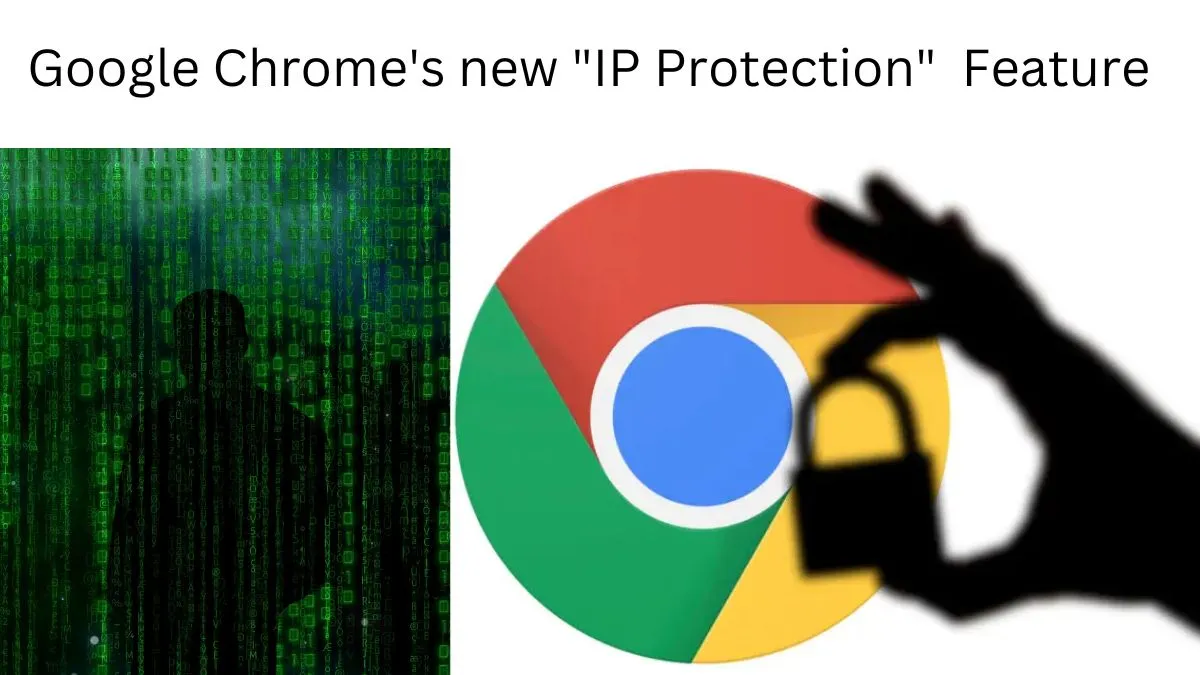Already Apple has the iCloud Private Relay feature to restrict third parties from collecting user’s IP addresses. Now, Google also building Chrome’s new “IP Protection” feature and it will also work similarly to Apple’s iCloud Private Relay. As per Google’s new feature, third-party websites aren’t able to get the users IP exact IP address when users browse through Chrome browser.

Experts believe that Chrome’s new “IP Protection” creates a significant impact on digital advertising.
Experts
In this article, I have explained Google Chrome’s new “IP Protection” and its impact on digital advertising.
What is Google Chrome’s new “IP Protection” feature?
As part of Google’s privacy sandbox initiative, Google Chrome’s new “IP Protection” feature is proposed and it is currently in a testing phase. This feature mainly focuses on hiding Chrome user’s IP addresses from third-party providers by re-routing the IP address.
Two-Hop Proxy System will be used in Google Chrome’s IP protection. The user must be signed in Chrome browser to avail of this feature.
When the user tries to access any website on Chrome browser, the traffic request is forwarded to the first hop and it’s a Google-owned proxy server. This first hop knows about the user’s location and it masks the IP address. Then, the masked IP address is forwarded to the second hop, a third-party proxy server. This third-party proxy server does not know about the user’s location.
As promised, google never uses the collected user’s location data for any advertising purposes.
Do you want to learn programmatic advertising? Here is the PROGRAMMATIC ADVERTISING COURSE
How IP protection feature allocates the IP address?
User location is mostly identified by the IP address and it is very important to provide user location-specific services. Many companies have specific affiliated websites based on user location. So, changing the IP address will impact these services. Do you have the same question? If so, I appreciate you. If not, no problem.

Both Apple’s iCloud Private Relay and Chrome’s new “IP Protection” follow the same way for allocating the masking IP address for their users. Both systems will allocate IP addresses from the nearby servers and not from the other countries or long distances. So, most user’s locations will not change but third-party providers can’t identify the exact location of the users. That’s how both systems work. So, location-specific websites still provide their services as they did before.
Google Chrome’s new “IP Protection” Impacts On Digital Advertising
Both Apple and Google Chrome’s IP Protection features will create a huge impact on digital advertising.
Location Targeting: Identifying a user’s exact location is very important for showing suitable advertisements online. Due to these IP protection features, providers are not able to get the user’s exact location. So, the effectiveness of location-based advertising will be reduced.
Measurement efficiency: These IP protection features change the user’s IP addresses frequently. So, it will be very difficult to measure the campaign performance.
Conclusion
Even though these IP protection features allocate the IP addresses from the nearby servers, it will be difficult to target users more geo-specific. Already, we are near to the cookieless world, and efforts like IP protection features surely impact digital advertising in many ways. Finally, user privacy online is the top concern around the world. So, we can’t oppose these changes entirely. As digital marketers, we should focus on identifying alternative ways to do digital advertising more effectively.
Related Articles :
IP Protection | Privacy Sandbox – Google for Developers: https://developers.google.com/privacy-sandbox/protections/ip-protection
Google Chrome to soon get a new ‘IP protection’ feature: Here’s what it does: https://indianexpress.com/article/technology/tech-news-technology/google-chrome-ip-protection-feature-8996335/
Google To Begin Testing IP Protection Privacy Feature In Chrome: https://www.trickyenough.com/news/testing-for-ip-protection-privacy-feature-in-chrome-will-begin-google/



